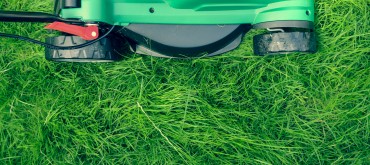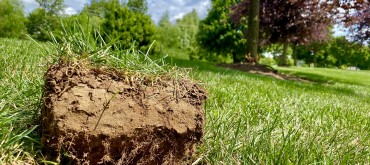Over the past few weeks, we’ve been emphasizing the significance of understanding how heat impacts your lawn. Today, we’re putting the spotlight on a specific insect that requires attention during these scorching mid-summer months: the chinch bug. Thriving in warm, dry conditions and favoring areas lacking moisture or proper fertilization, chinch bugs are small creatures that vary in color and size based on their maturity, becoming most prominent in July.
Chinch bugs cause damage by consuming the sap within the grass plant’s crown, gradually turning your lawn brown. As autumn approaches, they retreat from the lawn to seek sufficient overwintering sites like building foundations, garden beds, mulch, or landscape rocks where they spend the winter as adults. If you notice a drought-like appearance spreading from one of their overwintering sites, like your garden, it could be a telltale sign of their presence in your lawn.
To effectively combat chinch bugs, it’s essential to maintain a regularly fertilized lawn with appropriate watering and mowing practices. Watering your lawn once or twice a week with about 1 inch of water each time, and keeping the grass at a minimum height of 3 inches, will create an unfavorable environment for chinch bugs while promoting a healthy bluegrass lawn.
Currently, there is no official registered product for controlling these insects that we believe provides sufficient enough control to add to our current program mix. As a company, we will be continuing to explore new products as they become available and conduct our own research to determine their efficacy and whether or not it can be offered as a solution to our customers in the future.
If you encounter chinch bug damage, a helpful tip is to apply a soapy water solution to the affected areas when the bugs are most active (typically in June and July). You will want to aim to do this on a cooler day and avoid any hot, humid days. Follow this up with a thorough watering to rinse off any remaining soap from the grass. Soap serves as an effective deterrent for many small plant-feeding insects, helping to reduce their populations. As we enter August and temperatures rise, it’s crucial to stay vigilant against the impact of chinch bugs on your lawn’s health.
If you’re interested in learning more about lawn maintenance to prevent stressors that can harm your lawn, feel free to visit our website or reach out to our office for further information.





